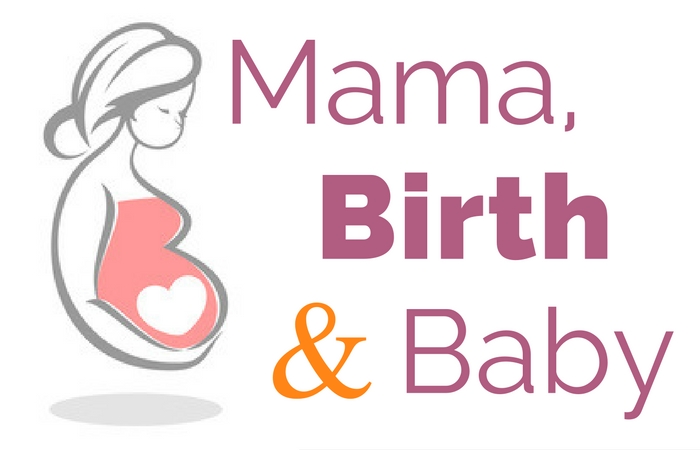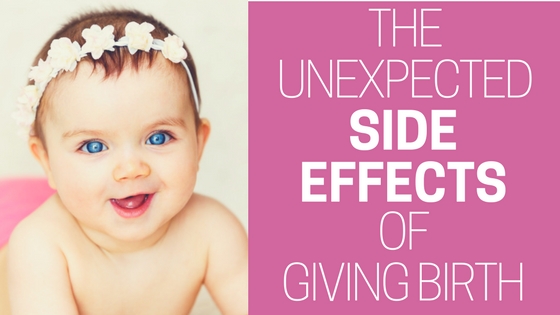
Congratulations! Your Baby is here. Now the fun really starts. You might have an idea of what to expect now, but here are a few of the more unexpected events that might catch you out. But first, a quick look at the most common, obvious and dreaded of all the New Mama issues….
Tiredness. Overwhelming exhaustion. A soul-sapping vacuum of energy.
You want to cry, but you haven’t even got the strength to make tears. The kind of brain-numbing exhaustion that leaves u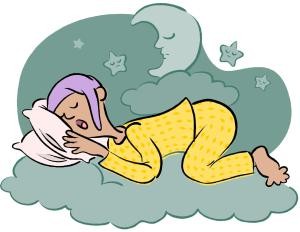 s putting car keys in the fridge, forgetting our own name and yes, sometimes even leaving our baby in the shopping trolley. This is what most new Mums expect first and foremost, and in most cases, is actually what you get – at least for the first 6-8 weeks. This exhausted state doesn’t just come from the sleep deprivation that accompanies a growing newborn’s need for bi-hourly feeds, changes and cuddles. It also stems from the brain shifting it’s modus operandus to a different, un-used (if you’re a first time parent) cerebral area, creating new thought processes and systems.
s putting car keys in the fridge, forgetting our own name and yes, sometimes even leaving our baby in the shopping trolley. This is what most new Mums expect first and foremost, and in most cases, is actually what you get – at least for the first 6-8 weeks. This exhausted state doesn’t just come from the sleep deprivation that accompanies a growing newborn’s need for bi-hourly feeds, changes and cuddles. It also stems from the brain shifting it’s modus operandus to a different, un-used (if you’re a first time parent) cerebral area, creating new thought processes and systems.
It’s the part of your brain that deals with nurturing, parenting and the selflessness that comes from putting your baby’s needs first and forgetting that you even had any needs in the first place. Like getting dressed. Or eating. Or brushing your teeth. We are re-wiring our brains and learning new skills. This alone is tiring work.
But I’m not here to tell you how tired you will be, or how tired you currently are, if your Little Treasure is already here. I want to highlight some lesser-known events which may (or hopefully not) land at your doorstep. It’s always good to be prepared – and more importantly, to know that if they are happening to you, you are normal!
1. YOU WILL STILL LOOK PREGNANT A WEEK AFTER HAVING YOUR BABY!
I was so surprised that my bulging belly didn’t shrink an inch for the first few days after Darling Son was born. I wondered what was in there still creating the full-term look: – wind? chocolate? a spare amniotic sac? I bumped into one of my Radiant Yogi Mamas who was a few weeks over her due date.
Me: “No sign of Baby Yet?” *sympathetic face*
Her: “He was born 3 days ago. We called him Jack”.
It appears that you will need 6 weeks before your Uterus shrinks back to it’s original size.
2. YOU WILL LOSE SO MUCH HAIR YOU COULD MAKE A WIG
That lustrous, glossy, bouncy mane of luxuriously thick and shiny hair that grew along with your Baby will start to shed. All at once. The extra hair that you didn’t lose while pregnant now comes out in handfuls. Trails of it follow you around the house. You have a hairy pillow. The plug hole in your bath is permanently blocked. Your hairbrush looks like a small animal. You think you are going bald. You aren’t. You are just losing the extra hair acquired during your pregnancy. Once the shedding stops, you will be left with your normal hair. Except you won’t actually like your normal hair anymore………
3. YOU WILL ACHE LIKE A 90 YEAR OLD GRANDMOTHER
Remember those hormones in your pregnant body (relaxin, progesterone) that made your joints and ligaments loose? The same ones that relaxed your bladder control, unleashed a torrent of heartburn and made your hips hurt? Well, like Elvis, they have now left the building. Your joints are now trying to draw back together and re-strengthen. Combine that with low estrogen levels, and you are left with a tired, aching body.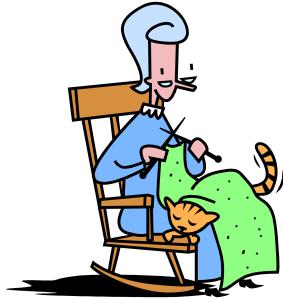
This will make you feel like you’ve done back-to-back Triathlons. In heels.
Your feet will be agony when you step out of bed in the morning. The space between your shoulder-blades will feel like someone nailed a plank there. Your spine feels like it is made out of wood. The best thing to do now is book yourself a few sessions of Post-Natal Yoga and treat yourself to a gorgeous massage.
4. COUGHING, SNEEZING AND RUNNING ARE NO-GO AREAS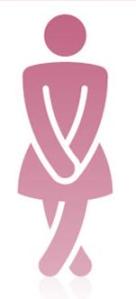
These everyday activities are now not an option due to the barely functioning Pelvic Floor and the associated sphincter muscles.(If you had a C-Section, add ‘laughing‘ into the mix as well – it will pull at your scar). The weight of a term baby, + that relaxin hormone again, + vaginal birth = poor pelvic floor tone. Combine that with your baby’s head pressing against your vaginal nerves during birth, which can temporarily ‘switch off’ any message that you need to pee, and there are accidents just waiting to happen. One new Mum very bravely shared her pelvic floor story that went something like this:-
“I needed to pee so I clenched my bladder control muscles and made my way towards the toilet. Except that nothing happened when I clenched. Nothing at all. I pee’d all over the kitchen floor. I knew my pelvic floor muscles were weak, but hadn’t expected that!“.
A good dose of Pelvic Floor Exercises will quickly cure this issue. Do 50 every time you feed your baby…….
And while we’re talking wee……
During your Pregnancy, your body will be carrying 40% extra fluid. This lives in the tissues and the bloodstream. Within an hour of giving birth, the kidneys re-set the fluid balance in the body, and you will very likely have the biggest wee of your life. As one Mama put it, “you’ll do a 10 mile pee“.
5. THRUSH? Really? But I haven’t had Sex since ………. [fill in the gap]
Yes, thrush, yeast infection, candida. Call it what you will, it’s quite a common side-effect of pregnancy and childbirth. It appears due to slight changes in the pH balance of the vagina, and the normal healthy bacteria (lactobacilli) now have a more alkaline environment to flourish. Wearing sanitary towels post-partum creates an even more desirable environment for candida.
And it doesn’t stop at your nether regions.
Nipples can also be prone to thrush, which you can then pass on to your baby. The Candida Albicans fungus loves warm, moist and sugary environments. Break out the natural yoghurt…….
6. YOUR FEET HAVE TURNED INTO FLIPPERS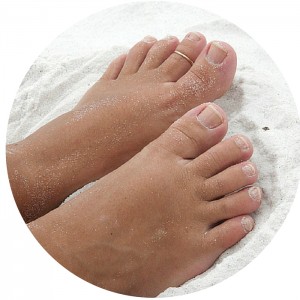
Remember all those months during your pregnancy when the only thing you could wear on your feet were your flip flops? It may not be over yet…….. Due to the softening of the ligaments in your feet, combined with the weight of your baby and uterus, the feet may spread out and widen. There are 26 bones in the feet, 33 joints and more than 100 tendons, ligaments and muscles that have been stretched out and lengthened during your pregnancy. While muscles regain their shape once stretched, ligaments and tendons do not.
Some women go up a whole shoe size following pregnancy!
Shoe shopping trip, anyone?
7. BOOBS – Bigger or Smaller?
Will your Boobs get bigger, smaller, saggier, firmer, mis-shapen, or stay the same following pregnancy and breastfeeding? That, my lovelies, is entirely Nature’s call. I have some friends whose boobs disappeared once they finished breastfeeding. I actually grew a pair of boobs while pregnant, and had to buy my first ever bra at the age of 33 during my First Trimester. In a Department Store in Cochin. India. But that’s another story. And just like your feet growing in size following the spreading of your bones, your rib cage may also do the same. So you may need a bigger bra size due to your chest width but not necessarily an increased cup size.
You might also suffer from engorged breasts once your milk fully comes in. This temporary and sometimes extremely painful increase in breast size happens because the breasts are full not just of milk, but also an increased blood flow. Try to encourage good feeding, and also – yes it does work – cold cabbage leaves in your bra. Or in your shoes.
8. POST NATAL PREGNANCY – Whaaaat?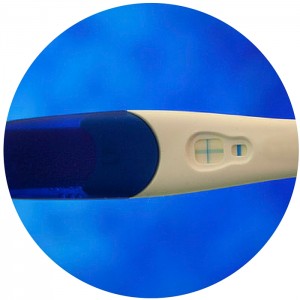
Yes – It can, and does happen. The fertility cycle happens like this – you OVULATE, then you MENSTRUATE. So you may not think your menstrual cycle has returned if you haven’t had a period yet. But guess what: you could be fertile and ovulating before that happens. Basically you can conceive before having your first post-partum period. Breast-feeding is not a contraceptive!
9. SWOLLEN ANKLES – Again? Whaaaat?
A classic condition of Pregnancy, swollen ankles, or oedema, usually clears up once baby is here (see above regarding the 10 mile wee!). However, occasionally mums get oedema post-natally, even if it didn’t happen while pregnant. In most cases it will just clear up by itself once the kidneys get back to work. (If you also have a headache and pains in your legs, or just one leg, please see your Midwife/Health Visitor/Doctor – it may be High Blood Pressure or DVT).
Post-natal Reflexology or a lymphatic drainage massage will usually sort this out. If the 10 mile wee doesn’t help!
10. NIGHT SWEATS? I’m not Menopausal……
So this is an amendment to the original blog post – my sister added a comment that she was having really severe night sweats post-natally. I’ve never come across Post-Natal night sweats before, but I did some research and YES, it is quite common. The causes are related to the body purging the 40% excess fluid following the birth (see Number 4 regarding the excess urination……). Sweating is just another way of getting rid of it. There are also some theories that it is the dramatic drop in Estrogen following the end of the pregnancy. Just like the drop in Estrogen causes night sweats during Menopause. It can also be prolonged if you are breastfeeding, due to hormones again!
11. HEMORRHOIDS, PILES AND PROLAPSE – Oh My!
Strong, forceful pushing in Stage 2 of your labour makes the veins stand out on your forehead, and also in your rectum. Nuff said! Forceful pushing, along with the deep stretching of the vaginal walls, can also cause more serious damage. Pelvic organ prolapse occurs when one or more of the pelvic organs (bladder, bowel or uterus) collapses into the vaginal canal as a result of weakness in the pelvic floor and the vaginal walls.
You can try to avoid these pelvic problems by birthing gently – using gravity and deep slow breaths to allow your baby to move slowly down the birth canal. Forceful pushing should only be used if baby needs to come out quickly (meconium present, foetal heart distress etc) or if you are lying on your back. The hemorrhoids will probably disappear with time, but any prolapse will need professional guidance and another good dose of appropriate pelvic floor exercises. See my YouTube video for an explanation of how, why and when we should do our PF Exercises, and some examples of what to do. And most importantly – AVOID any ab crunches or sit-ups. The extra pressure in your abdomen will worsen any prolapse.
12. I’VE GOT A GAP IN MY ABS! (Diastasis Recti)
During pregnancy, the 2 sides of your rectus abdomimus muscles (the 6-pack) separate down the middle of your abdomen to make more room for your baby. Normally these muscles slowly and eventually gather themselves ba
ck together following delivery of your baby. This can take up to a year. Occasionally this doesn’t happen, and the gap between the 2 sides remains.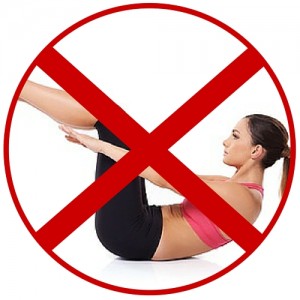
Diastastis Recti (or DR) is often diagnosed through severe back ache (no support from the core muscles), and a large bulge in the abdomen (the intestines pushing through the gap!). It is more common after several pregnancies, with multiple births and in women over 35.
All new Mums should avoid sit-ups for at least 6-9 months
Ah, that feels better doesn’t it! Sit-ups create too much pressure in the abdomen, and with a weak or separated rectus abdominus, will just push your intestines and underlying muscle through the weakened area. Avoid lifting heavy objects as well. To help to fix DR, use a simple breathing exercise which will work on your transverse muscles. These need to be strengthened prior to working on the rectus muscles.
- Breath out slowly, pulling your navel back towards your spine.
- Hold the navel in for 10 seconds, while breathing normally
- Relax for 10 seconds, then repeat. Do 10 rounds. Repeat daily.
Try to do this everytime you feed your baby. Along with your pelvic floor exercises. Whilst texting. And checking Facebook.
13. I gave birth 3 days ago. WHY AM I STILL HAVING PAINFUL CONTRACTIONS?
It can come as a surprise to be back home, nursing your baby and still be suffering from some rough uterine contractions. This can carry on for up to 7 days post-partum (get the birthing ball back out!). It’s caused by the involution of the uterus, and your contractions are squeezing your uterus once again, this time to shrink back to it’s non-pregnant size.
The uterus increases in size by 2,200% during pregnancy.
So you can imagine that there will be some fall-out as it reduces in size. First time mums may not notice these sensations, but subsequent births will induce quite painful contractions. Which are then made worse when you breastfeed. As with all contractions, they are doing a worthwhile job. Just thought you ought to know so you can be prepared if you are a second-time mum!
OH, AND DID I MENTION HOW TIRED YOU WOULD BE?
Short bursts of Yoga Relaxation (Yoga Nidra) and Meditation should help to give you enough zap to go on for a few more hours.
But the over-riding thing you will feel, the thing that gets you through the nights, and that makes your heart burst with joy every single day from here on in, is the over-whelming, all-consuming wave of love you will feel every time you look at your baby. Even when they are teething. Even when they are tantrumming toddlers. And even when they are grumpy, hormonal teenagers. And that makes it all worthwhile.
